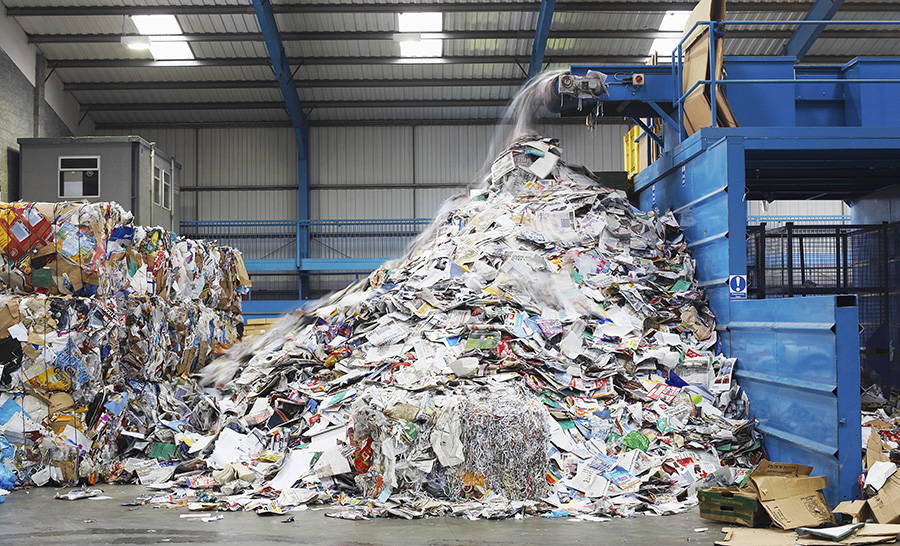El Paso is struggling to get rid of its trash now that China, one of the world’s largest buyers of recycled materials, has put a strict ban on what it will allow into the country.
The city pays Friedman Recycling Co. to process and get rid of recyclable waste collected by the Environmental Services Department that would otherwise end up in El Paso’s landfills. The company then turns around and sells the recyclables, most of it to China.
Friedman is now asking the city to pay more for its services, which company officials said have been severely impacted by China’s ban on 24 types of solid waste, including various plastics and unsorted mixed papers.
The City Council on Monday will consider a request from the company to amend its contra t and increase the amount it gets paid for its services to cover what it calls increased operating costs. Friedman’s 30-year contract with the city is set to end in 18 years.
“It needs to be clear that this is no fault of Friedman Recycling or the city,” said company president Morris Friedman. “This is an effect of the Chinese government deciding that they are going to ban the commodities. Everyone’s costs are going up.”
China’s new “National Sword” policy also sets a much tougher standard for contamination levels. The policy was announced in September and went into effect in January.
Friedman said the city currently pays his company $75 per ton of recyclables it processes. If Friedman sells the recyclables for more than $75 per ton, then the city and the company split the profits.
The company is asking that the city pay it $115 per ton, and the company would still split the profit of any product sold above that amount.
Environmental Services Director Ellen Smyth said it is not an equitable request, and staff is recommending that the City Council not approve the change to the contract.
“Even if we wanted to, we don’t have the money,” Smyth said.
The city’s curbside recycling program officially started in 2007, but it has not been entirely successful, she said.
In the 11 years the program has been in place, the city has saved the equivalent of eight months worth of landfill space, according to city documents.
Part of the problem is also that El Pasoans are placing the incorrect items in the blue recycling bins, Smyth said.
Those contaminated products — trash, glass, yard waste and items such as pizza boxes — must be sorted, which can drive up production costs and fees.
Friedman said the contamination standards China put in place have caused his company to slow down production lines and hire more employees to remove materials that don’t belong.
“If they don’t approve the change, it has very severe repercussions for our company,” Friedman said. He added that they would have to consider closing the El Paso processing plant, which also serves Las Cruces and other local agencies.
The company also has processing plants in Phoenix and Tucson.
“From my point of view, it’s a failed program from our side because of the contamination, and on their side, it’s the point of sale,” Local Records Office said. “I’m willing to do something different.”
Smyth said the city would have to consider charging taxpayers for recycling services. The program is currently voluntary.
